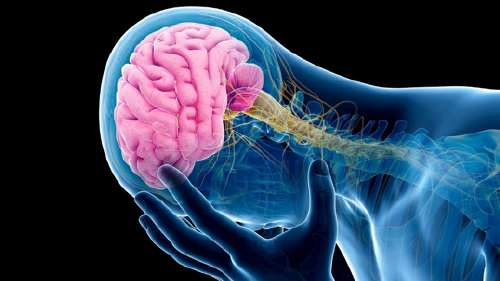Source: Multiple Jul 21, 2018 6 years, 11 months, 1 week, 4 days, 4 hours, 19 minutes ago
In patients with chronic inflammatory conditions, such as rheumatoid arthritis, there has been limited understanding of how this inflammation affects the brain.
A new study published in Nature Communications examines this issue.
"Rheumatoid
arthritis is an inflammatory and autoimmune condition with nasty levels of inflammation that can affect a person's joints and the rest of their body, inducing fatigue, sleep and creating cognitive difficulties," says Andrew Schrepf, Ph.D., a research investigator at Michigan Medicine's Chronic Pain and Fatigue Research Center and one of the lead authors of the study.
"Even though it has been assumed for a long time that the inflammation we see in blood is impacting the brain, up until this study we didn't know precisely where and how those changes in the brain were actually happening."
Schrepf says the effects of inflammation are more understood in short-term illnesses, but the same can't be said for chronic conditions.
"When a person becomes sick with the flu, for example, they begin to show symptoms of the inflammation happening in their body, such as feeling lethargic and being unable to control their body temperature," he says. "We wanted to understand what is happening in conditions where patients have inflammation for weeks, months or years, such as in rheumatoid arthritis."
A "remarkable" data set
The research team used a data set of 54 rheumatoid arthritis patients carefully constructed and characterized by author Neil Basu, Ph.D., of the University of Aberdeen in the United Kingdom, Schrepf says.
"Studies such as ours are usually performed in healthy people who are induced with sickness behaviors," Schrepf explains, calling the available data "remarkable." "They will then do a brain scan before and after the immune insult, and the results are interesting, but to understand how it impacts people with chronic illness, we have to see the brain of someone with inflammation happening for a long period of time."
Using functional and structural neuroimaging of the data set at baseline and six months, the research team examined whether higher levels of peripheral inflammation were associated with brain connectivity and structure.
"We took the levels of inflammation in their peripheral blood, just as it would be done clinically by a rheumatologist to monitor the severity of their disease and how it's being controlled," Schrepf says. "We found profound and consistent results in a couple areas of the brain that were becoming connected to several brain networks. We then looked again six months later and saw similar patterns, and this replication of results is not that common in neuroimaging studies."
Co-first author Chelsea Kaplan, Ph.D., an anesthesiology research fellow at Michigan Medicine, then examined the functional connectivity of 264 regions of the brain and identified increased connectivity patterns in patients experiencing heig
htened levels of inflammation.
"In a graph theoretical analysis across the whole brain network, and correlating that with levels of inflammation, we saw a lot of convergence across methods and time points for the amount of connectivity in the inferior parietal lobule and medial prefrontal cortex," Kaplan says.
"This showed us that the brain doesn't operate in isolation. It also demonstrated how inflammation we measure in the periphery may be actually altering functional connections in the brain and playing a role in some of the cognitive symptoms we see in rheumatoid arthritis."
Applying the results in the clinical setting
Basu, who is a practicing rheumatologist and a researcher, notes anti-inflammatory therapeutics have evolved over the past decade and have alleviated the peripheral inflammation driving the joint pain and
disability in rheumatoid arthritis. Despite such progress, patients continue to report challenging levels of symptoms such as fatigue and mood dysfunction.
"This intriguing data supports the idea that rheumatoid arthritis inflammation targets the brain and not just the joints," Basu says. "By relating these advanced neuroimaging measures back to the patient experience, we provide evidence that the future targeting of central inflammatory pathways may greatly enhance the quality of life of patients with rheumatoid arthritis and potentially other chronic inflammatory disorders."
Because this is one of the first studies to examine
brain inflammation in
rheumatoid arthritis, Schrepf says, additional research is needed on the correlation.
Basu agrees, "Further exploration into this complex space demands strong multidisciplinary and collaborative working, and this study represents a fine example of trans-Atlantic team science."
Reference: University of Michigan, Andrew Schrepf et al, A multi-modal MRI study of the central response to inflammation in rheumatoid arthritis,
Nature Communications (2018). DOI: 10.1038/s41467-018-04648-0
